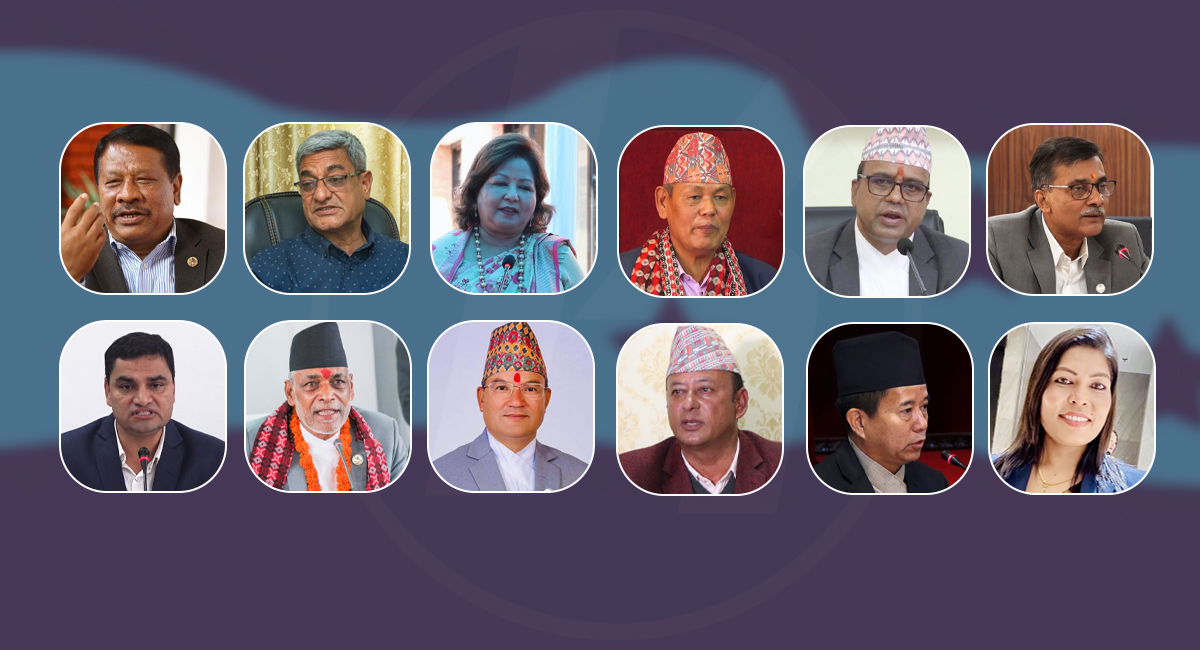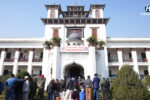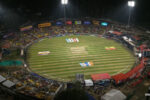KATHMANDU: Ministers from the Nepali Congress (NC) participating in the coalition government led by KP Sharma Oli have largely ignored the directives issued by party President Sher Bahadur Deuba, raising concerns over their commitment to internal party coordination.
Deuba had instructed ministers representing the party in government to visit the Nepali Congress central office in Sanepa twice a week to engage with party leaders, listen to grassroots complaints, and maintain communication with party cadres. However, reports indicate that ministers have not been following this directive, leading to growing dissatisfaction within the party ranks.
During a parliamentary party working committee meeting at Deuba’s residence in Budhanilkantha on February 12, he emphasized the need for ministers to regularly visit the party headquarters and interact with local leaders.
Following the meeting, Chief Whip Shyam Ghimire briefed the media, stating that ministers would now visit the central office in Sanepa twice a week to meet leaders and workers and address their concerns. However, sources at the Nepali Congress central office in Sanepa claim that no minister has been seen visiting regularly in accordance with Deuba’s orders.
While General Secretaries Gagan Thapa and Bishwaprakash Sharma have been frequent visitors, ministers have remained absent.
A staff member at the party headquarters confirmed that the general secretaries come two to four times a week, but ministers have not shown up. Another official at the Nepali Congress central office stated bluntly that not a single minister has come in the past month.
While the ministers do attend party-organized conferences and summits, they have not been proactively engaging with party workers in Sanepa, as instructed.
On January 29 and 30, all ministers were present at the Nepal Start-up and Small and Medium Enterprises Conference, organized by the Nepali Congress Department of Entrepreneurship and SMEs. However, these appearances were limited to formal events rather than open discussions with grassroots leaders.
An office employee at Sanepa stated that all ministers had come to the summit but had not returned since then.
The lack of accountability from NC ministers has raised questions within the party. Even senior leaders such as Deputy Prime Minister and Urban Development Minister Prakash Man Singh—one of the key figures in the government—have not followed through on Deuba’s instructions.
Singh’s personal secretary, UP Lamichhane, acknowledged the issue but suggested that a formal schedule for visits is still under discussion, saying that the party itself has said that a schedule will be made.
In addition to the Sanepa visits directive, President Deuba also instructed ministers on January 27 to coordinate closely with party MPs to ensure smooth governance and maintain party discipline. MP Ramhari Khatiwada, who was present at the meeting, explained that the president instructed ministers to work in coordination with the MPs, although the work may be a little difficult.
Deuba stressed that coalition stability must be maintained as per the seven-point agreement between coalition partners but also warned against governance failures. Khatiwada said there is no dispute that the coalition government will continue as per the agreement, but if there is a mistake, the chairman has said to keep the mistakes open.
Despite this, the party has remained silent about whether ministers have followed this directive.
The failure of ministers to comply with party leadership’s directives highlights growing internal tensions within the Nepali Congress. As the party attempts to balance its role in the coalition government while maintaining internal unity, Deuba’s authority is being undermined by ministerial non-cooperation.
Political analysts suggest that this could have long-term consequences for the party’s influence in government. If NC ministers continue to prioritize their ministerial roles over party engagement, it could lead to weakened grassroots support and internal rifts ahead of future elections.
With increasing pressure from party leaders, MPs, and grassroots members, it remains to be seen whether President Deuba will take further action to ensure ministerial compliance.
If the non-cooperation continues, Deuba might be forced to reconsider ministerial appointments or exert stronger pressure within the party. However, with the coalition government already facing multiple challenges, it is unclear whether the NC leadership has the political leverage to enforce discipline effectively.
For now, the party’s ministers remain largely absent from Sanepa, and Deuba’s calls for stronger party engagement continue to go unanswered.









Comment